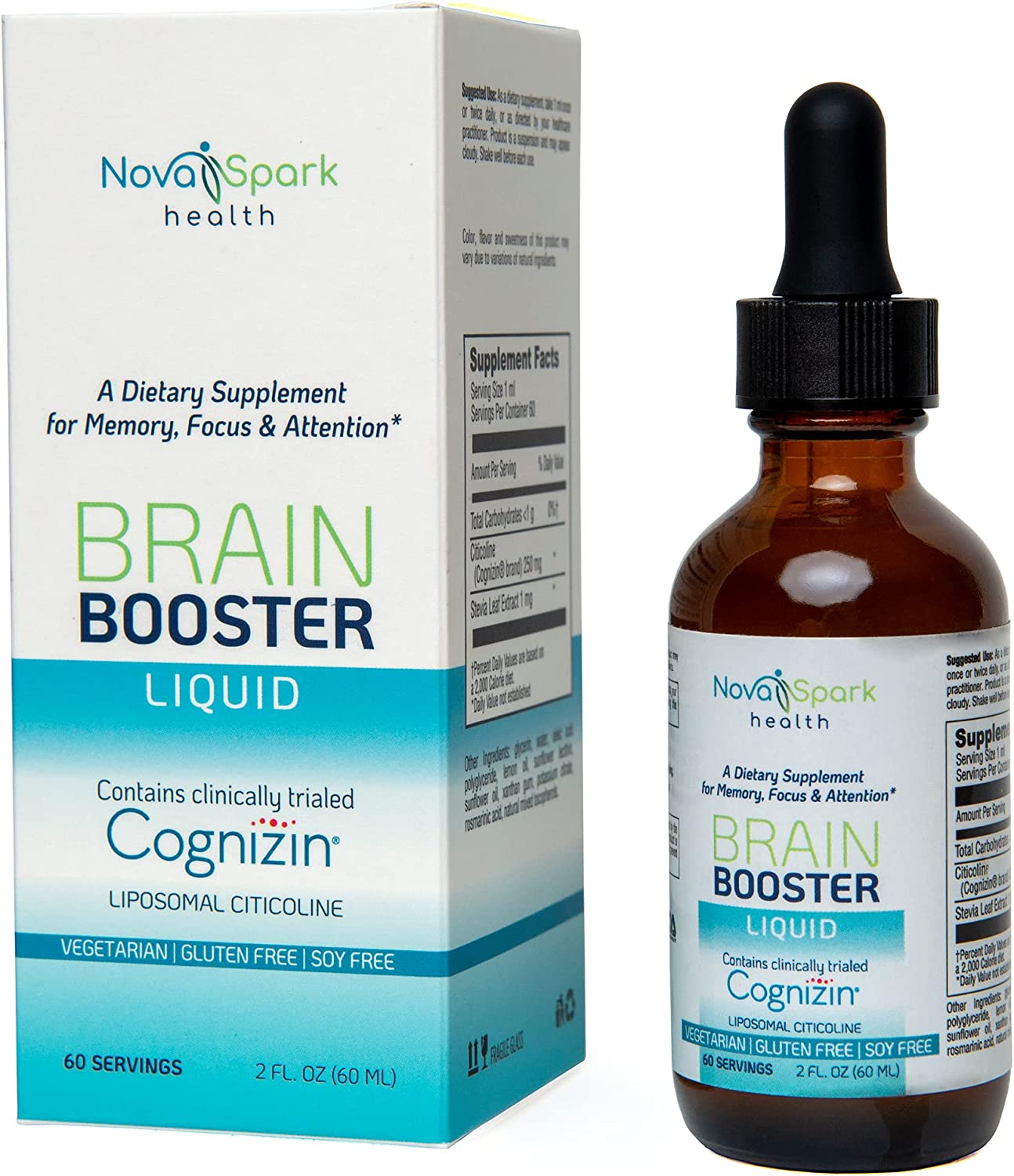Article
Smart ways to boost your brain and improve your memory
It starts like any other day. You wake up. The routine you follow is simple. As you go about your morning ritual, you sense that something is not quite right. What are you missing?
You shrug off the odd sensation. Or you attempt to. However, it's still lurking in the back of your mind. There was something that needed to be done today. What was it? Was it important?
From room to room, you start a search for a clue. A note, something on your calendar, a piece of mail, anything to prompt your mind to remember.
Nothing pops out at you. There is no AHA moment. You have your breakfast, and you start your day. It's Saturday… right? That's good; it wasn't working you were worried about. As the morning progresses, maybe you do some household chores, do a little cleaning, or try to relax and dismiss this feeling.
Then, as morning turns into the afternoon, it happens. Your phone goes off, it's your good friend, and they are upset. They explained that you were supposed to have lunch and they had waited an hour for you. However, you were not there; you didn't remember.
After apologizing profusely and rescheduling lunch for the following day, you sit down and try to think. You have no recollection of the conversation with your friend. Apparently, it took place just two days ago and was over an hour long.
Nothing comes to mind. You cannot recall any of it. Sadly, this is not the first time such an occurrence has happened. It seems like often, you forget things and have difficulty recalling information. What is going on – what is happening to your once vibrant memory.
More importantly… what can you do about it.
An all-to-common occurrence.
Memory loss as we age has been expected since mankind became aware of it. Fortunately, it is becoming more discussed as professionals devote more time to studying it.
This issue arises most commonly as we age. The most recent data suggests that up to 20% of the population suffers from memory loss and decreased cognitive function. That's 1 in 5, and it's a significant problem.
There are four main types of memory loss.
Sensory Memory – This is considered the shortest-term memory. Generally lasting only 3 seconds, it relates to recalling sensory experiences (seeing, hearing, tasting, etc.).
Short-term memory – This memory loss can range from a few minutes to a few days. Think about asking someone the same question repeatedly. The inability to recall previous answers or even the fact that you asked the question is a leading indicator of short-term memory loss.
Working memory – Your working memory is closely tied to your short-term memory. This type of memory allows us to keep limited amounts of information stored long enough to be helpful. This information is used in processing your thoughts and making plans. Working memory is also used in generating ideas.
Long-term memory – These memories can range from a few weeks to early childhood. Memory loss moves from short-term to long-term as we age. Therefore, although someone has trouble remembering what day it is, they can tell you about the terrible bike wreck they had in the third grade.
Alzheimer's, dementia, and just plain forgetfulness rise as we age. Fortunately, science has been digging into why these things happen, and some fantastic compounds show great promise in helping you regain and retain your memory.
The basics of maintaining brain health.
You can incorporate many simple things into your daily life to maintain the overall health of your brain.
Get plenty of sleep –when you are tired and groggy, your brain does not operate at total capacity. Quality sleep is needed for your brain to restore and maintain a proper balance. Try setting up a calming routine before bedtime. And figure out ways to put the stresses of the day behind you, even before you lay your head on your pillow.
Eating healthy - is a no-brainer; your nutrition affects every aspect of your body. It makes sense that if your diet is poor, cognitive function will be poor. Make sure to incorporate plenty of fresh fruits and green leafy vegetables into your diet. Your diet should also have plenty of B vitamins and folic acid. These vitamins and minerals have been shown to reduce the risk of dementia.
Physical activity - is another vital part of your routine that should not be ignored. Movement boosts blood flow to the brain and improves nerve cells in the portion of the brain that controls your memory. At the minimum, you should try to move for at least 30 minutes non-stop, five days a week.
Be social – Join that local club, volunteer at the hospital or senior center. Just get out there and be part of your community. This leads to conversations and activities and keeps you laughing, talking, and planning. All those things help keep your mind sharp.
Keep your mind challenged – from crosswords to games on your smartphone, there are many ways to continue challenging your mind. Making this part of your routine has shown promise in maintaining your current brain power.
Write it down – writing things down helps stimulate your brain. Since your brain can only keep track of so much, writing things down enables you to organize and plan. Try something as simple as mapping out your day on a calendar.
Even with these activities incorporated into your daily life, memory loss still occurs. Whether we like it or not, a natural process happens as we age. However, science is learning more all the time.
What does science know about our memory?
By the time you reach your 20s - there is a change going on in your brain – yes, it starts that early. Your body begins to lose one of the main building blocks that maintain brain cell integrity.
Phospholipids are the main building blocks of our cell membranes. A significant component of phospholipids in the brain is phosphatidylcholine (Citicoline). This compound makes up about 30 percent of our brain's phospholipids. This chemical slowly decreases in our body as we age, and by the time we reach the age of 80, there can be up to a 20% decrease in this vital component.
It is believed that enhancing your brain's phospholipids is essential to maintaining and improving memory, focus, attention, and overall brain health.
So, clinical trials are ongoing and have been performed extensively with the naturally occurring compound Citicoline. Treating memory loss with Citicoline has shown some fantastic benefits, and further research continues to yield positive results.
Three studies highlight the powerful effects of this naturally occurring chemical.
One study of a proprietary form of Citicoline – Cognizin Citicoline – showed improved attentional performance in healthy women aged 40-60. These women had no pre-existing health conditions, yet the addition of this powerful chemical improved their attention performance.
Another study found that using Citicoline for 12 weeks improved overall memory performance in healthy older males and females with age-associated memory impairment.
A third study suggests that Citicoline may help mitigate cognitive decline associated with aging by increasing energy reserves and energy utilization within the brain. This improvement is also associated with an increase in the all-important levels of phospholipids needed to synthesize and maintain our brain's cell membranes.
All these findings suggest that regular consumption of Citicoline may be safe and potentially beneficial against age-related memory loss.
Science continues to prove that Citicoline is a potent brain nutrient.
How can you get more Citicoline?
One way to increase your intake of Citicoline is through your diet. However, fair warning, the options for doing so are not great.
There are only a few foods high in Citicoline. These include animal products such as liver, brain, and other organ meats. Along with being hard to access (when was the last time you saw brain for sale at the supermarket), you would have to eat large quantities of these foods daily.
This is an unsustainable and unappetizing way to receive additional Citicoline. Another option is to find a well-made, high-quality supplement.
A great new product is now being offered by the fine people at NovaStar Health.
Brain Booster Liquid
Specifically designed to support mental energy, focus, attention, and memory. This easy-to-swallow and great-tasting liquid provides robust support to your brain by adding 250 milligrams of Cognizin® Citicoline with each dose.
This unique form of Citicoline is encapsulated by liposomes, which form a "protective shell" around the Citicoline molecules. The shell allows the Citicoline to be delivered to the parts of the body where it can be used to reach its full potential.
This design produces a form of Citicoline like no other on the market today. The liposomes keep Citicoline from breaking down within the harsh environments of the stomach and intestines. This delivers more of what you need to replace what you have lost.
Brain Booster Liquid is not a quick fix to the problems of memory loss associated with aging. Just as the aging process takes time, so does the process to help repair the loss of phospholipids in our brain. So, this isn't a product claiming instant relief or energy boost, such as a cup of coffee. This is a nutrient for your brain, and nutrients take time to build in your system.
Manufactured at an FDA-inspected facility here in the US on behalf of NovaSpark Health, this Brain Booster Liquid meets the strictest manufacturing standards. Along with a great flavor making it easy to take, it is also –
-
Vegan friendly
-
Gluten-free
-
Soy free
Everyone (including yourself) is aging, and studies have proven this aging leads to a decline in the essential tissues of the brain.
You can take action to reverse this natural occurrence within our brains. A quality supplement such as Brain Booster Liquid is the logical first step.
With its excellent flavor, unique delivery system, and 60 full doses per bottle, there is no reason you shouldn't try it today.
These statements have not been evaluated by the Food and Drug Administration. This product is not intended to diagnose, treat, cure, or prevent any disease. COGNIZIN® is a registered trademark of Kyowa Hakko Bio Co., Ltd.
* In partnership with our friends at Creative Retail Partners LLC.* Photo courtesy of Creative Retail Partners LLC.*
* These statements have not been evaluated by the Food and Drug Administration. These products are not intended to diagnose, treat, cure or prevent any disease.
* The information available on ewellnessmag.com, including text, graphics, and other materials is for informational purposes only. Reliance on any information in ewellnessmag.com is at the user's own risk. Sponsored product placement may appear in the article. The visitor of this website acknowledges that the information available on or through ewellnessmag.com is not and is not intended to be a substitute for professional medical advice. Copyright © 2022 Brawo Press, Inc. All rights reserved.
Share article












You must be logged in to add a comment ... → Log in | Register